Indian Nobel Prize Winners
Check out list of Indian Nobel Prize winners and the the facts on the Nobel Prize
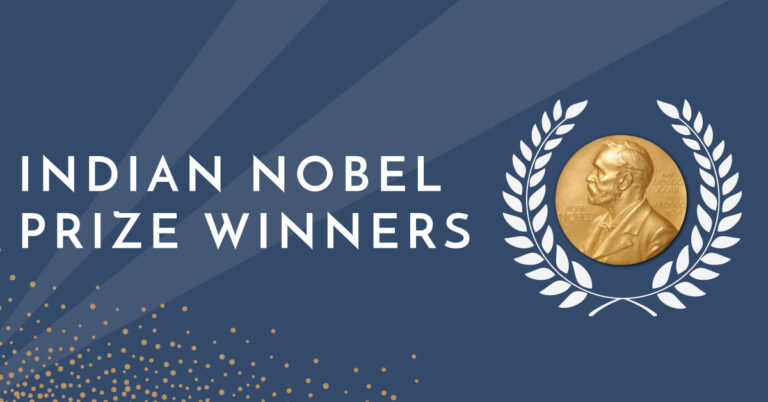
What is a Nobel Prize?
Complete List of Nobel Prize Winners in India: Nobel Prize is one of the most prestigious awards in the world. It is named after a Swedish businessman and philanthropist, Alfred Nobel. The Nobel Prize is bestowed on “those who conferred the greatest benefit on humankind”. The cash amount of the award has been increasing every year and in 2021, the winners were awarded 10 Million Swedish Kronors, equivalent to approx. 1.1 Million USD.
The categories of the prizes are:
The Nobel prize award ceremony started in the year 1901, and even today, it is considered to be the most distinguished honor. Among the total number of Nobel Prize winners across last 120+ years, there have been 9 Indian Nobel Prize Winners who have been bestowed with this recognition across various categories.
Learn about the lives of some of these winners in our podcast Famous Indian personalities >>
Who are the Nobel Prize Winners in India?
Scroll below for full list of Indian Nobel Prize Winners
The names of the Nobel prize winners in India till date are as follows:
- Abhijit Banerjee for Economics- 2019
- Kailash Satyarthi for Peace- 2014
- Venkatraman Ramakrishnan for Chemistry- 2009
- Amartya Sen for Economics- 1998
- Subrahmanyan Chandrasekhar for Physics- 1983
- Mother Teresa for Peace- 1979
- Hargobind Khorana for Medicine- 1968
- CV Raman for Physics- 1930
- Rabindranath Tagore for Literature- 1913
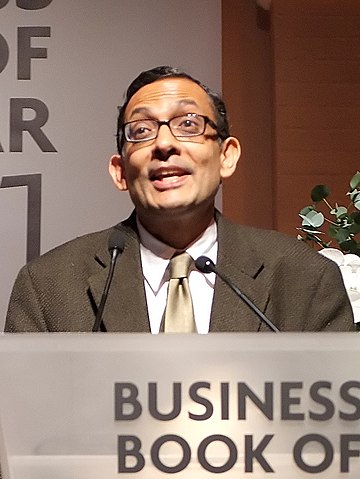
Abhijit Vinayak Banerjee
(1961- Present)
Nobel Prize: Abhijit Banerjee was awarded the Nobel Memorial Prize in Economic Sciences in 2019 alongside Esther Duflo and Michael Kremer “for their experimental approach to alleviating global poverty.” He is the most recent addition to the Nobel Prize winners list in India.
Birth: Abhijit Banerjee is an Indian-born American economist who was born on 21 February 1961, in Mumbai. Both his parents were professor in Economics in Calcutta.
Education: This Indian Nobel laureate received his school education and college education from Calcutta. Later in life, he earned a Doctorate from Harvard University, in United States.
Profession: He is currently the Ford Foundation International Professor of Economics at Massachusetts Institute of Technology (MIT). Before becoming a professor at MIT, he taught at Harvard University and Princeton University.
Other Accomplishment: He is the co-founder of Abdul Latif Jameel Poverty Action Lab, and was President of the Bureau for the Research in the Economic Analysis of Development. He had also been a Guggenheim Fellow and an Alfred P. Sloan Fellow.
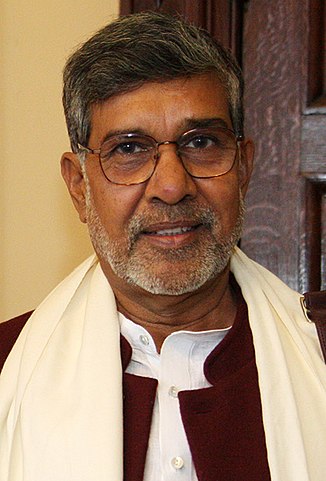
Kailash Satyarthi
(1954- Present)
Nobel Prize: Kailash Satyarthi and Malala Yousafzai shared the Nobel Peace Prize in 2014 “for their struggle against the suppression of children and young people and for the right of all children to education.”
Birth: Kailash Satyarthi is an Indian social reformer who fought against child labor in India. He was born on January 11, 1954, in the Indian state of Madhya Pradesh.
Education: This Indian Nobel laureate received his school education and college education from Vidisha. Later he gave up his engineering career to launch a campaign against child slavery.
Profession: Bachpan Bachao Andolan, Global March Against Child Labour, Global Campaign for Education, and Kailash Satyarthi Children’s Foundation are among his many social activist organizations.
Other Accomplishment: In 2021, UN Secretary-General Antonio Guterres has named Indian Nobel Prize Winner Kailash Satyarthi as a Sustainable Development Goals Advocate.
Read and learn about these Indian Nobel Prize Winners >>
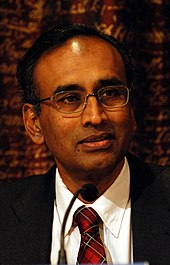
Venkatraman Ramakrishnan
(1952- Present)
Nobel Prize: Venkatraman Ramakrishnan along with Thomas A. Steitz and Ada Yonath, shared the Nobel Prize in Chemistry in 2009 for “studies of the structure and function of the ribosome.”
Birth: Venkatraman is an Indian-born British-American structural biologist who was born on 1952, in a Cuddalore district in Tamil Nadu to a middle-class family where both his parents were scientists.
Education: Venkatraman received his school and college education from Gujarat. Later in life, he moved to US to complete his Doctorate of Philosophy from Ohio University in 1976 and started focusing on research on ribosomes since then.
Profession: Venkatraman is a Fellow of Trinity College, Cambridge, and has worked as a group leader at the Medical Research Council, Laboratory of Molecular Biology on the Cambridge Biomedical Campus since 1999. From 2015 to 2020, he was the President of the Royal Society.
Other Accomplishment: This Indian Nobel Prize Winner was elected to the American Philosophical Society and the British Library’s board of directors in 2020.
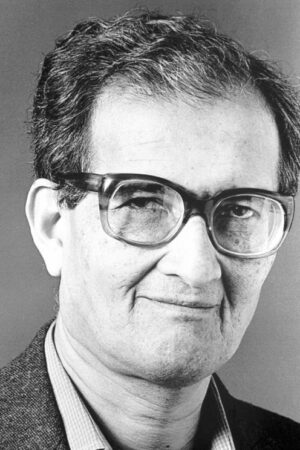
Amartya Sen
(1933- Present)
Nobel Prize: Amartya Sen is an economist and philosopher from India who has made contributions to welfare economics, social choice theory, economic and social justice, famine economics, decision theory, growth economics, more. His work “for his contributions to welfare economics” won him the Nobel Memorial Prize in Economic Sciences in 1998 and India’s Bharat Ratna in 1999.
Birth: Amartya Sen was born on 1931, in Bengal. He was given his name by Rabindranath Tagore, as his mother, a learned academician, was closely associated with Tagore’s organization.
Education: This Indian Nobel laureate received his school education from Dhaka, college education from Calcutta and then went to college Trinity College, Cambridge for his second bachelors degree.
Profession: Amartya Sen served as a professor of Economics and Philosophy in Harvard University and Thomas W. Lamont University. He was previously Master of Trinity College at the University of Cambridge.
Other Accomplishment: Amartya Sen is regarded as one of the most decorated economists of all time. He was the first non-American to receive the National Humanities Award in 2012, and also assisted in the creation of the United Nations Development Index. Amartya Sen was named to Time Magazine’s “100 Most Influential People in the World” list in 2010. Recently in 2021, this Indian Nobel prize winner has also been awarded the top Spanish award in Social Sciences category called “Princess of Asturias Award”.
Read and learn about these Indian Nobel Prize Winners>>
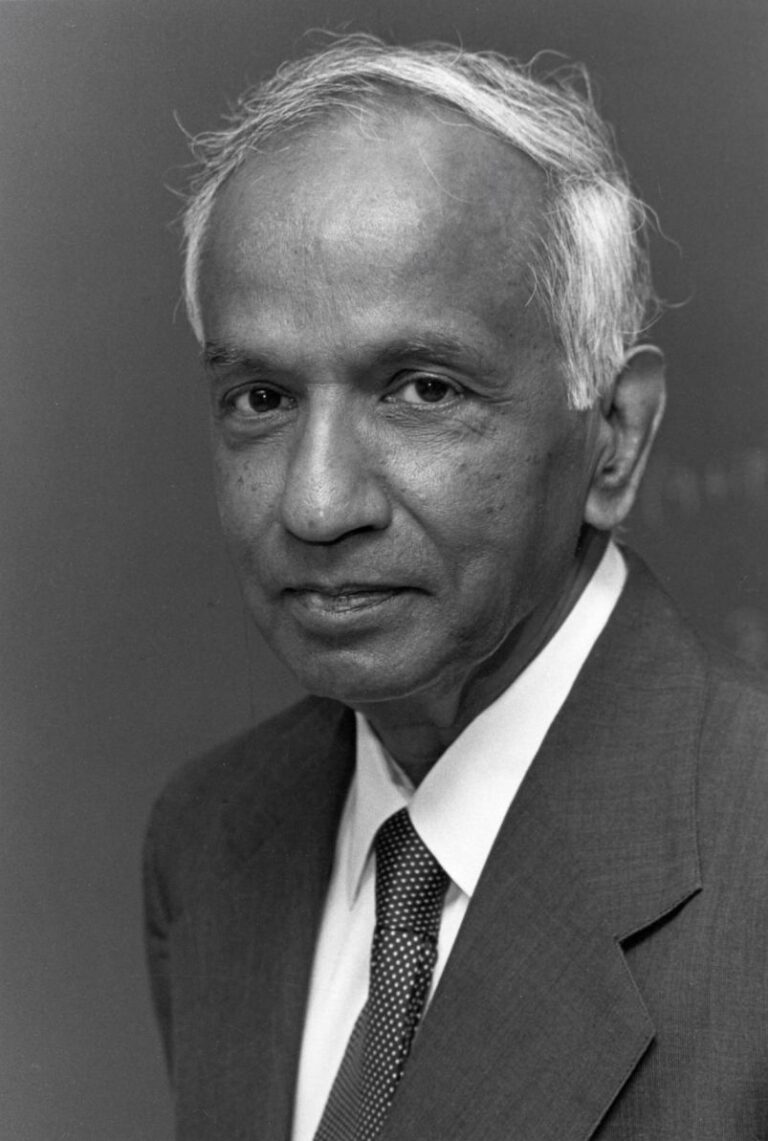
Subrahmanyan Chandrasekhar
(1936- 1995)
Nobel Prize: Chandrasekhar along with William A. Fowler, was awarded the Nobel Prize for Physics for “theoretical studies of the important physical processes of star structure and evolution.” He joined the Indian Nobel Prize winners list in 1983.
Birth: Chandrasekhar was an American Indian astrophysicist who has been in the United States for all of his professional life. Chandrasekhar was born on October 1910 in Lahore. He was the nephew of Sir CV Raman, another renowned Indian Nobel Prize Winner.
Education: This Indian Nobel Prize Winner was tutored at home until the age of 12. He received his school education and college education from Madras. Later in life, Chandrasekhar was awarded a Government of India scholarship to pursue graduate studies at the University of Cambridge.
Profession: He was a long-serving professor at the University of Chicago, where he completed part of his research and served as editor of The Astrophysical Journal.
Other Accomplishment: In 1979, NASA named the third of its four “Great Observatories” after this Indian-American astrophysicist. In 2010, on account of Chandrasekhar’s 100th birthday, Chicago University conducted a symposium to celebrate his achievements and involvement in astrophysics and space research which was attended by world’s leading astrophysicists.
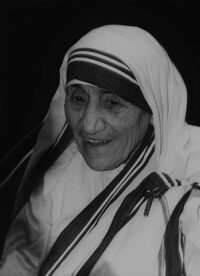
Mother Teresa
(1910- 1997)
Nobel Prize: In 1979, she was awarded Noble Peace Prize “in recognition of [her] work in bringing help to suffering humanity”. Mother Teresa was the first woman Indian Nobel Prize Winner.
Birth: Mother Teresa was an Albanian-Indian Roman Catholic nun and missionary. She was born on 26 August 1910 in Ottoman Empire. Mother Teresa’s official name was Agnes Gonxha Bojaxhiu.
Education: In 1928, this Indian Nobel laureate, at the age of 18, entered the Loreto Sisters at Loreto Abbey in Ireland to study English in preparation for a missionary career. In India, the Sisters of Loreto used English as their medium of education.
Profession: Mother Teresa established the Missionaries of Charity in 1950, a Roman Catholic charitable religious organization with about 4,500 sisters serving in 133 countries as of 2012. The congregation is in charge of homes for terminally sick people, as well as those suffering from leprosy and tuberculosis. She devoted her whole life to supporting and raising the needy and the poor.
Other Accomplishment: She also received the Bharat Ratna Award and many more Civilian awards and rewards. In 2016, after her miracles were proven, the Vatican canonized her for Sainthood and named her “Blessed Teresa of Calcutta”.
Read and learn about these Indian Nobel Prize Winners >>
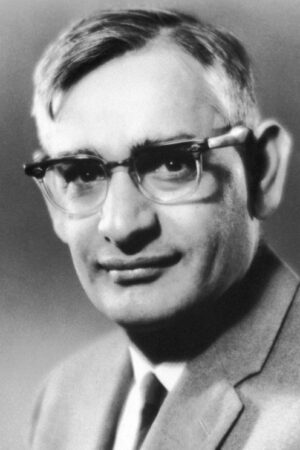
Har Gobind Khurana
(1922- 2011)
Nobel Prize: Har Gobind Khurana was awarded the Nobel Prize for physiology or medicine in 1968 “for their interpretation of the genetic code and its function of protein synthesis.” with Marshall W. Nirenberg and Robert W. Holley.
Birth: The Indian American Biochemist was born on 9th January, 1922 in Punjab, India.
Education: This Indian Nobel laureate received his school education and college education from Punjab. Later in life, he moved to England to study organic chemistry from the University of Liverpool on a Government of India Fellowship.
Profession: Har Gobind Khurana taught at three colleges in North America, including the University of Wisconsin at Madison, Massachusetts Institute of Technology, and The Scripps Research Institute’s Board of Scientific Governors.
Other Accomplishment: In 1978, Har Gobind Khurana was elected to the Royal Society as a Foreign Member. The Khurana Program was founded in 2007 by the University of Wisconsin–Madison, the Government of India, and the Indo-US Science and Technology Forum. The Khurana Program’s goal is to create a smooth network of scientists, industrialists, and social entrepreneurs between India and the United States.
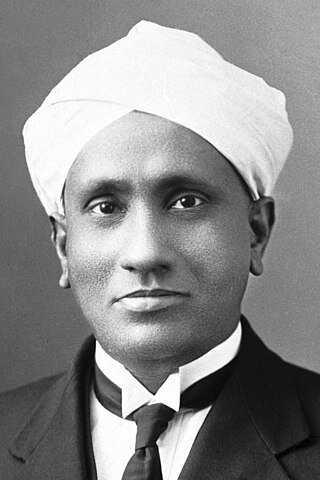
C.V. Raman
(1888- 1970)
Nobel Prize: CV Raman was the first Asian to be awarded a Nobel Prize in all fields of science “for his work on the scattering of light and for the discovery of the effect named after him in 1930.” He was the second Indian Nobel Prize Winner but the first Indian scientist to win Nobel prize.
Birth: CV Raman was born on November 7, 1888 in Tiruchirapalli, Madras Presidency to a Hindu family with modest means.
Education: This Indian Nobel laureate received his school education and college education from Andhra Pradesh and Madras respectively. Raman’s physics teacher, Rhishard Llewellyn Jones, was aware of his abilities and encouraged him to pursue his research in England, but he was unable to do so due to his bad health.
Profession: He worked as an Assistant Accountant General for the Indian Finance Services in Calcutta. He resigned from this service after a decade to go back to his love for teaching at half the salary. CV Raman was named the first Palit Professor of Physics at the University of Calcutta in 1917. Seeing the Mediterranean Sea on his first journey to Europe inspired him to figure out the explanation for the sea’s blue colour.
Other Accomplishment: CV Raman established the Indian Journal of Physics, became the first Indian director of IISc Bangalore and also established the Raman Research Institute in Bangalore
Read and learn about these Indian Nobel Prize Winners >>
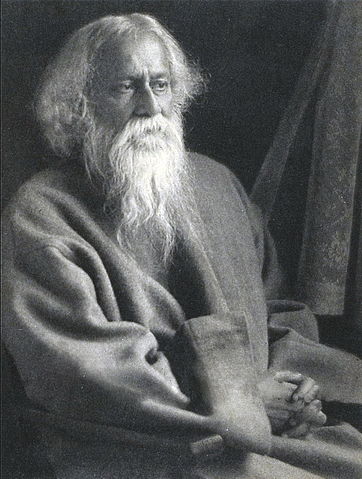
Rabindranath Tagore
(1861- 1941)
Nobel Prize: He was the first Asian and the first Indian to win the Nobel Prize for Literature in 1913 “because of his profoundly sensitive, fresh and beautiful verse, by which, with consummate skill, he has made his poetic thought, expressed in his own English words, a part of the literature of the West.”
Birth: He was born on 7th May 1861 in Calcutta. Rabindranath Tagore was an author, playwright, musician, philosopher, social reformer, and painter in addition to being a poet.
Education: This Indian Nobel laureate never attended any physical school as his father believed in the theory of “Free flow of education”. In 1878 he was sent to England to study law but he preferred reading Shakespearean plays and dramas.
Profession: From 1880, he started writing dramas, short stories, novels, poetry, and songs. Gurudev was also an acclaimed musician since his childhood. He composed so many beautiful songs that he has his separate genre, “Rabindra-sangeet”. During the Independence movement, Tagore used his tool, his pen, and wrote several patriotic poems for his fellow Indians.
Other Accomplishment: His compositions were chosen by two nations as national anthems: India’s “Jana Gana Mana” and Bangladesh’s “Amar Shonar Bangla“.
Facts about Indian Nobel Prize Winners
- In 2019, Abhijit Banerjee, jointly won the Nobel Prize for Economics and is added to the list of “Indian Nobel Prize Winners”.
- The very first Indian Nobel Prize winner is Rabindranath Tagore. He was the first Indian citizen to be awarded and also first Asian to be awarded in 1913.
- Men of great honor like Sri Aurobindo Ghose, Mahatma Gandhi were also nominated for the Nobel prize in the field of literature and peace respectively.
- R.K. Narayan the best-known Indo-English writers was nominated multiple times for the Nobel Prize in Literature but never won.
- Jagadish Chandra Bose, the unsung hero behind Wi-Fi technology was nominated for the Nobel Prize many times but didn’t win the medal.
- Meghnad Saha who is considered to be the pioneer of astrophysics has been nominated 7 times for the Nobel PrizeWinner from India but did not make it.
Who are the other Nobel Prize Winners from India?
These Indian Nobel Prize Winners were born in India or were residents in India but not Indian citizens.
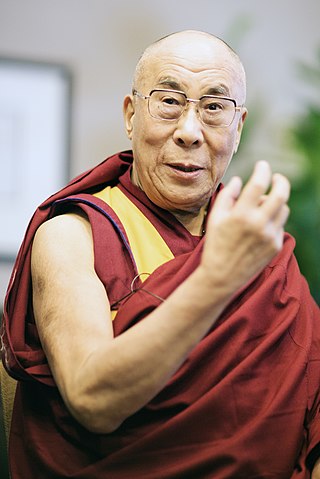
One of the Indian Nobel Prize Winners in Peace, “For his consistent resistance to the use of violence in his people’s struggle to regain their liberty.”
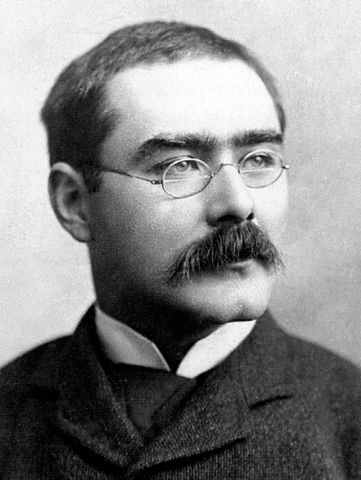
One of the Indian Nobel Prize Winners in Literature, “In consideration of the power of observation, originality of imagination, virility of ideas and remarkable talent for narration which characterize the creations of this world-famous author.”
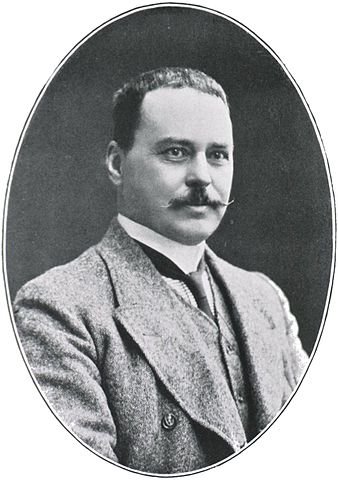
One of the Indian Nobel Prize Winners in Physiology or Medicine, “For his work on malaria, by which he has shown how it enters the organism and thereby has laid the foundation for successful research on this disease and methods of combating it.”
Read and learn about these Indian Nobel Prize Winners >>
Podcasts on the Indian Nobel Prize Winners?
The best way to know about the Indian Nobel prize winners is to listen to their life history and achievements.
C.V. Raman: One of the Indian Nobel Prize Winners to receive a Nobel Prize in Physics
Dalai Lama: One of the Indian Nobel Prize Winners to receive a Nobel Peace Prize
Rabindranath Tagore: First Indian Nobel Prize Winner to receive a Nobel Prize in Literature
Mother Teresa: One of the Indian Nobel Prize Winners in Peace
More podcasts on Indian Nobel Prize Winners are coming soon!
FAQ'S about Indian Nobel Prize Winners
Who is the first Indian Nobel Prize winner?
Rabindranath Tagore was the first Indian Nobel Prize winner.
How many Nobel Prizes India has won?
India has own 12 Nobel Prizes.
Who is the first Indian woman to get Nobel Prize?
The first Indian woman Nobel Prize winner was Mother Teresa.
On which day Nobel Prize is given?
10 December, on the anniversary of Nobel’s death.
Who is the second Indian Nobel Prize winner?
Sri Chandrashekhara Venkata Raman is the second Indian Nobel Prize winner.
Was Mahatma Gandhi one of the Indian Nobel Prize Winners?
No, Gandhi did not win a Nobel Prize



Good information
This information is awesome I like it